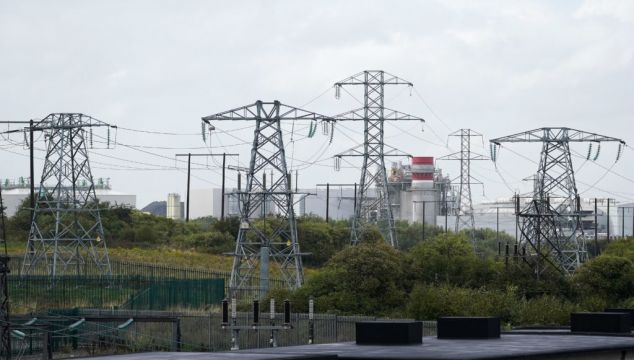Ireland could receive up to €2 billion if the EU introduces a windfall tax on energy companies, the Environment Minister has said.
Eamon Ryan said he was confident EU countries would reach agreement on implementing new measures in a bid to reduce soaring energy prices.
EU energy ministers were due to meet in Brussels on Friday morning in an attempt to approve the implementation of emergency energy windfall levies.
Speaking from Brussels, Mr Ryan said the text had been agreed and that the measures will be useful for Ireland.
Good news. An extraordinary meeting of the EU energy council has agreed measures which will allow us redirect some of the windfall gains in the gas & electricity markets to Irish households and businesses. We are also being asked to agree ways to cut peak hour demand. #Solidarity pic.twitter.com/VJXbCrAScr
Advertisement— Eamon Ryan (@EamonRyan) September 30, 2022
“Our officials here in my department have been working at length with the (EU) Commission,” Mr Ryan told RTÉ Radio 1’s Morning Ireland programme.
“We’ve a good text now, we’ve a good mechanism which will allow us to identify some of the windfall gains that are going to energy companies and to be able to bring them back to help Irish households and businesses to add to what was done in the Budget earlier this week.
“I expect we will get agreement, it will be useful for Ireland,” he added.
Asked about how much it would raise for Ireland, the Green Party leader replied: “One to €2 billion, sort of, is the expectation of what we should expect.
“But that depends on so many different factors – you can’t exactly be clear, but it’s that sort of amount of money.”
Im in Brussels today at emergency EU Energy Council. We will agree two things.
1. A windfall levy on fossil fuel producers.
2. Structural reform of electricity market to limit profit on generators who’s costs have not gone up. pic.twitter.com/qGlo3ITs3S— Eamon Ryan (@EamonRyan) September 30, 2022
On Tuesday the Government announced €600 worth of energy credits for households as part of its €11 billion Budget measures.
The €200 credits will be paid in three instalments over the coming months.
But the Government stopped short of introducing a cap on energy prices to bring certainty to customers over their energy bills, despite mounting pressure from the opposition.
France, Austria, Italy, the Netherlands, Denmark, Poland, Slovakia and the Czech Republic are among a number of EU countries who have introduced an energy price cap.
EU countries are prepared for the winter season ahead.
Gas storage facilities across the EU are already filled at almost 90% of their capacity.
👉 This will help gas supply for the cold months. #EnergySecurity #EnergyPrices #TTE— EU Council (@EUCouncil) September 30, 2022
Mr Ryan said his German counterpart had told him that they have not decided on a price cap as of yet.
“They haven’t actually decided on a price cap,” he said. “They may do some mechanism. But they’re working on that and they haven’t concluded.
“Like ourselves, they are also adapting and evolving their position and we will continue to do that.”
Mr Ryan described the scale of the intervention in the Budget earlier this week as “significant”.
But he said they would have to “continue to review the measures”.
“What we’ve agreed and said is we will look and see how they work to get through this winter period.
“Particularly those on very difficult situations within the social welfare system, there is mechanisms where they can go to the Social Welfare Service to look for additional supports.
“We don’t want anyone going cold or through real acute fuel poverty this winter.”







